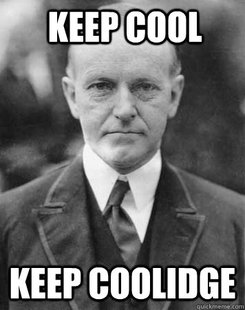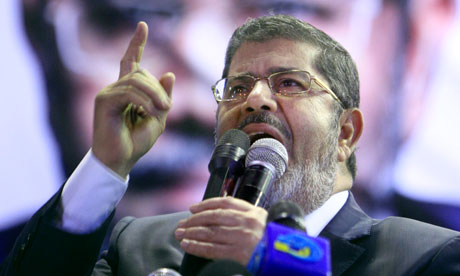Mary Jo White is one of the toughest prosecutors ever to emerge in a district that’s renowned for them. During her nine-year stint as U.S. attorney for the Southern District of New York, the 5-foot-tall White showed no fear in prosecuting some of the world’s most dangerous and violent men. She convicted Omar Abdel Rahman, the notorious “blind sheikh” who plotted to blow up the United Nations, and Ramzi Ahmed Yousef, who schemed to destroy the World Trade Center and U.S. airliners. She also won murder and racketeering convictions against John Gotti, the capo di tutti capiof Mafia bosses.
But as President Obama’s choice to head the Securities and Exchange Commission, the 65-year-old White is going to be entering a very different world. One problem is institutional: The SEC, unlike the Justice Department, prosecutes only civil, not criminal, cases, and traditionally settles the vast majority of them. Another issue is personal: When you prosecute terrorists, you’re not thinking about hurting the reputations of friends you might have in al-Qaida, or jeopardizing a cushy position that might be waiting for you down the road. When you take on a John Gotti, you’re not likely to be worried about jeopardizing some future sinecure in the Mafia.
The sorry historical record of recent years shows that things work very differently in the ever-revolving world of financial justice. “On the positive side of the ledger, Mary Jo White has always had a reputation as a pit bull,” says Bill Singer, a former attorney for the American Stock Exchange and the National Association of Securities Dealers as well as a longtime critic of the SEC. “For the first time, we don’t necessarily have a career regulator in the mold of an Arthur Levitt or [current SEC chief] Mary Schapiro. But if she takes over, it does raise uncomfortable feelings that the revolving door at the SEC is spinning yet again.”
Indeed, as financial blogger Yves Smith points out, since White left her job as U.S. attorney in 2002, she has represented former Bank of America CEO Ken Lewis in a civil fraud suit and served as a board member of NASDAQ. “The biggest potential fly in the ointment on the conflicts side,” Smith adds, “is that her husband, John White, who headed the SEC’s corporate finance section under Chris Cox [but] is back at Cravath, has been lobbying against regulation.”
Beyond that, it’s just much harder to prosecute civil fraud in the arcane world of Wall Street (where the typical defense is that no one understood how bad things would get—one heard often in recent years) than it is to build criminal cases against terrorists and mafiosi. The six-year statute of limitations on Wall Street’s offenses during the subprime-mortgage scandal—unquestionably one of the worst financial frauds in history—is now running out without a single major conviction of, or civil finding against, any major executive.
White might find a cautionary tale in the career path of Robert Khuzami, the SEC’s just-departed director of enforcement, who, like White, was known as a first-rate prosecutor from the Southern District. (In fact, he helped White put Abdel Rahman behind bars, and later hung on the walls of his SEC office two framed court drawings of himself arguing that case.) Like White, he was somewhat compromised: He had worked for Deutsche Bank, one of the biggest culprits in the subprime-mortgage disaster. Despite setting up promising special investigative units of prosecutors, Khuzami failed to get even an admission of liability from Goldman Sachs in trying to prove that the investment bank had deceived investors by helping to design a complex security that was designed to plummet in value so that “short-sellers” such as John Paulson could make a bundle. In another case, against Citigroup in 2011, Khuzami was sharply rebuked by U.S. District Judge Jed Rakoff, who refused to approve the SEC’s $285 million settlement with the bank because, as in the Goldman case, the commission failed to gain any admission
of wrongdoing.
of wrongdoing.
Khuzami is credited with restoring morale to the SEC after its disastrous failure to uncover Bernie Madoff’s 20-year scam, but some critics point out that most of his success has been with traditional insider-trading cases, which is mostly what the SEC has excelled at pursuing, even though such activities remain widespread on the Street. “Where he made a terrible mistake is in not insisting on an admission of liability” in the subprime cases, Singer says. “The point is that none of these major brokerage firms is ever going to clean up its act until one day some intelligent SEC enforcement chief or prosecutor says, ‘You’re not going to be allowed to do any underwritings for 30 days and, two, we’re going to insist you admit to liability.’ ”
One thing White may have going for her is that Khuzami’s boss, Schapiro, is a fairly easy act to follow. During her tenure, the SEC pursued few major subprime-related prosecutions—although, like Khuzami, Schapiro did manage to bolster the SEC’s enforcement process and create a new tips database and a whistle-blower office. But, Singer argues, much more is needed. “Mary Jo White needs to come into the SEC with a sledgehammer, not with a putty knife,” he says. “Regulators in Washington usually go through three stages: I don’t know; I’m about to make changes; and, thanks for the job.”
There’s really nowhere to go but up.






